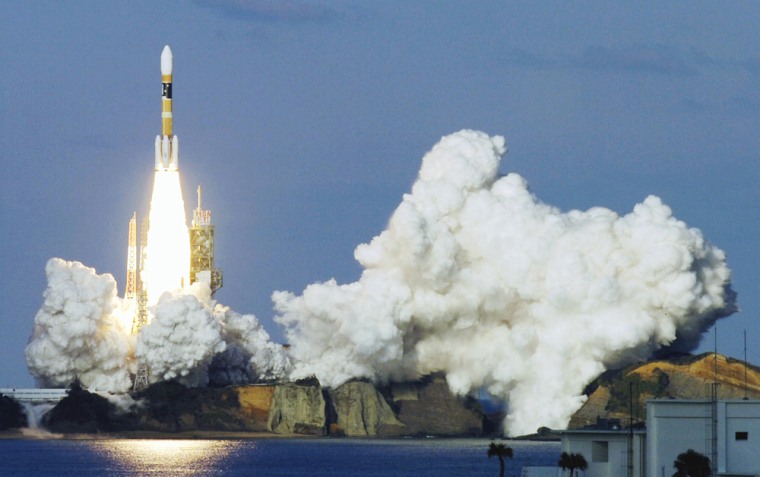Japan successfully launched its biggest satellite to date on Monday, the latest step toward repairing the image of its troubled space program.
A domestically developed H2-A rocket carrying the Kiku experimental communications satellite lifted off from Tanegashima Space Center in Kagoshima in southern Japan on Monday afternoon.
“The satellite has separated from the rocket,” a Japan Aerospace Exploration Agency official said in a live broadcast on the agency’s Web site, which showed other officials applauding after the announcement.
The agency later confirmed the satellite had gone into a transfer orbit and was expected to enter its final orbit in a week.
JAXA hopes a successful launch, which would be the sixth this year, will bolster Japan’s plans to enter the commercial satellite business and encourage the country’s space community.
Those plans suffered a huge blow in 2003 when an H2-A carrying two spy satellites veered off course and had to be destroyed in a spectacular fireball.
“We had discouraged the Japanese people when our rockets malfunctioned before, but since then we have been making every effort to regain citizens’ confidence,” JAXA project manager Akio Tsujibata said ahead of the launch. “Now we have come to the point where we think we can catch up with the world’s leading nations soon.”
Japan last year announced ambitious targets for its space program, including manned spaceflight — a feat already achieved by Asian rival China.
Kiku, equipped with solar array panels and deployable antennas whose combined size of 131 square feet (40 square meters) makes it one of the world’s largest human-made satellites, is intended improve mobile phone-based communications, JAXA said on its Web site.
It also aims to help develop technologies for a satellite-based multimedia broadcasting system for mobile devices, a function that could speed up rescue operations at disaster sites, the agency said.
The launch, originally scheduled for the weekend, had been delayed by cloudy weather and a threat of lightning.
